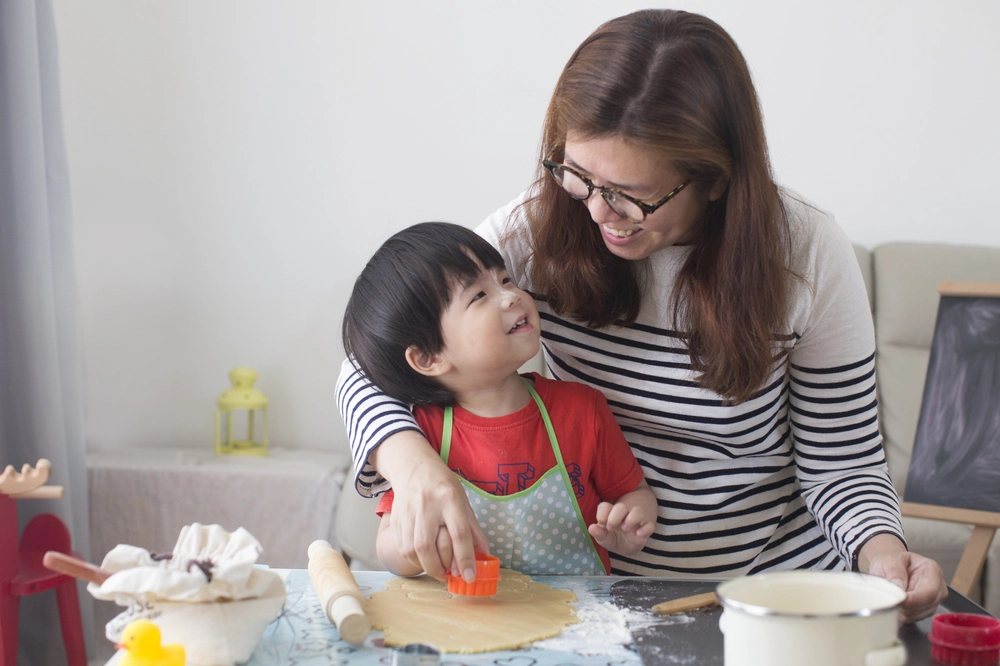Topics
Why is calcium important?
Calcium is an essential mineral vital for the development of healthy bones and teeth. It provides structure and strength to our skeleton. Calcium is also important to help our muscles to contract, regulate our heart rhythms, and transmit electrical messages from our brain to the rest of our body.
About 99% of calcium is found in our skeleton (bones). The remaining 1% is in our teeth, soft tissues, plasma, and extracellular fluid.
However, our body is incapable of producing calcium on its own. Therefore, our calcium intake usually comes from external sources such as foods or supplements containing calcium.
How much calcium does a fetus need?
When a fetus is undergoing the process of organogenesis, which is the transformation of a mass of cells into an organ in the developing embryo, the fetus needs calcium.
A full-term fetus in the third trimester is made up of approximately 30g of calcium. 99% of the calcium is actively transported one-way from the mother to the fetus via the placenta at the beginning of 12 weeks of gestation and peaks at week 36.
Fetal calcium levels suggest that ionised calcium is transferred from mother to fetus at a rate of 50mg per day at 20 weeks of gestation to a maximum of 330mg per day at 35 weeks of gestation.
Therefore, it is very crucial for mothers-to-be to get at least 1,000mg of extra calcium daily during their pregnancy to ensure the fetus receives enough calcium while preventing maternal osteoporosis.
How much calcium does a child need?
Calcium intake varies according to the child’s age. Children need more calcium as they grow older to support their growing bones. The American Association of Pediatrics (AAP) recommends:
- Babies under 6 months: 200mg per day
- Babies 6-11 months: 260mg per day
- Children 1-3 years old: 700mg per day
- Children 4-8 years old: 1,000mg per day
- Children 9-18 years old: 1,300mg per day
Calcium intake is crucial for all stages of our growth and development from fetus to adulthood. However, calcium requirement is at its peak between the ages of 9 and 18, also known as the pubertal stage due to growth spurts.

How do I ensure my child’s calcium intake is enough?
The best calcium sources are dairy products such as milk, cheese, and yogurt. For those who have lactose intolerance, their source of calcium can include dark, leafy green vegetables. Other alternatives include tofu, calcium-fortified soy drinks, broccoli, Chinese cabbage, legumes, almonds, and sesame seeds.
It is important to know that calcium and Vitamin D go hand-in-hand. Vitamin D helps our body to absorb calcium. Without it, calcium is unable to go towards building strong bones.
Breastfed babies would need Vitamin D supplementation soon after birth as breast milk is low in Vitamin D. For formula-fed babies, most infant formulas would have added Vitamin D. For older children, they require approximately 600 international units (IU) of Vitamin D per day.
What are the 3 tips for parents to bear in mind?
- Calcium does not work alone
Besides eating calcium-rich foods, engaging in weight-bearing physical activity, and including Vitamin D in your child’s food intake are also crucial for the development of strong and healthy bones. - Be physically active
As mentioned above, regular weight-bearing activities such as walking, running, jumping, and playing sports (such as football or basketball) can help build strong bones. - Vitamin D
Remember to supplement your child with Vitamin D to ensure efficient calcium metabolism.
Book an appointment at Pantai Hospitals
The caring and multidisciplinary team of healthcare professionals are available for consultation and to provide the best care. Get in touch with us to find out more about Paediatrics services at your nearest Pantai Hospital.
Pantai Hospital Malaysia is accredited by the Malaysian Society for Quality in Health (MSQH) for its commitment to patient safety and service quality.













